New Zealanders’ support helps thousands of people affected by the conflict in Ukraine
21 October 2024
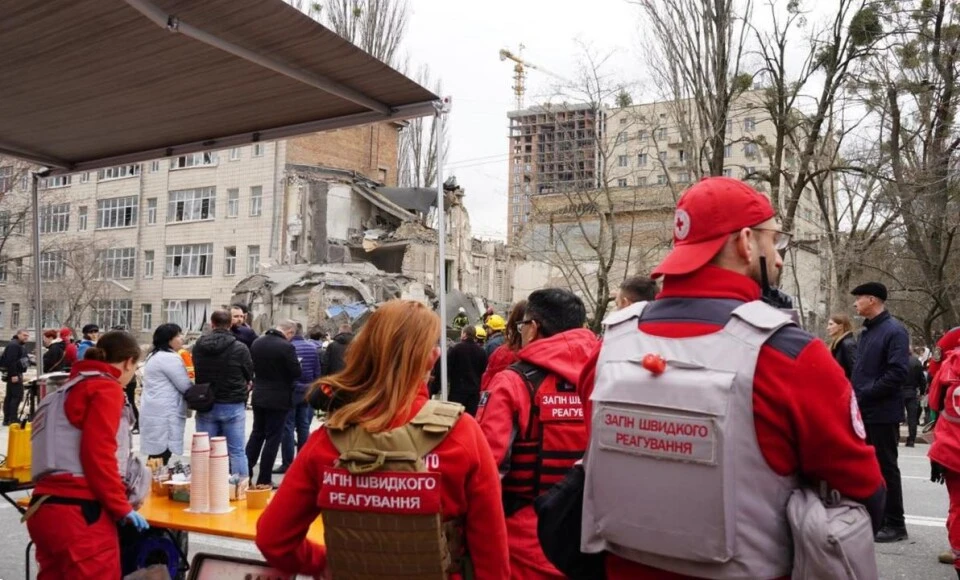
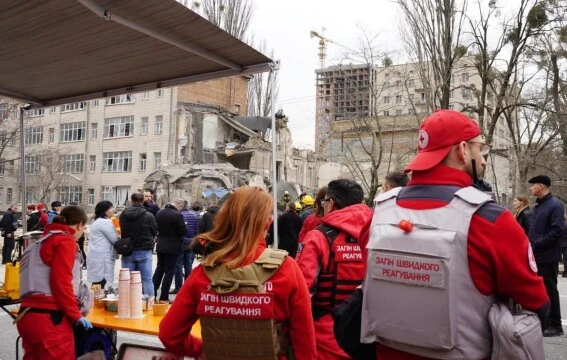
The generosity of New Zealanders means we have raised just over NZD$5 million to help people affected by the conflict in Ukraine.
The armed conflict between Russia and Ukraine is causing indescribable loss and suffering for civilians – a staggering 27 million people have been impacted.
Since February 2022, and the escalation of conflict, millions of people have fled their homes, thousands have died and been injured, and civilian infrastructure has been heavily damaged and destroyed. More than six million people have crossed Ukraine’s borders to seek safety. The majority are in 17 neighbouring countries, while some have travelled as far as New Zealand, Japan and Canada.
The international Red Cross Red Crescent Movement, of which we are a part, has assisted more than 18 million people affected by the conflict. National Societies, like New Zealand Red Cross, have been fundraising locally to send donations to the International Committee of the Red Cross (ICRC) and the International Federation of Red Cross and Red Crescent Societies (IFRC) so that local Red Cross and Red Crescent volunteers and staff in Ukraine and in neighbouring countries, can provide much needed humanitarian relief to people in need. Funds also allow National Societies to send international delegates to the region to support the response.
How your donations helped people in need
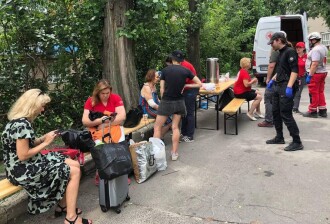
Support for people forced to leave their homes
The generous donations to the Appeal have allowed us to send funds to ICRC and IFRC to support the humanitarian response, helping Red Cross Red Crescent volunteers and staff deliver essential relief in the region – including food, blankets, shelter, health and medical care, and cash support to those most in need. In New Zealand, donations are being used to assist Ukrainians who arrived under the Special Ukraine Visa to find work to support themselves and their families. Through our Pathways to Employment – Ukraine project, we’ve been able to support almost 100 people with well over a third finding paid employment.
"We are incredibly grateful to everyone who has contributed to our Appeal. Your contributions are part of a worldwide effort to support people who are living in extremely challenging and unstable environments. Thank you,” says Jasmine Edwards, Director Philanthropy, New Zealand Red Cross.
Donations to the Appeal enabled us to send two of our specialist delegates to the region in 2022. Security specialist John Dyer spent five weeks in Western Ukraine developing a security plan to ensure Red Cross workers could reach people in need with humanitarian aid. Information specialist Natalie Gyles spent over three months in Hungary, Poland and Romania. She was instrumental in rolling out a digital cash and voucher programme allowing eligible people to self-register to receive cash and other support via a mobile phone app. This work paved the way for the programme to continue, which has now assisted people in eight countries and in 42 languages and is often their main source of income. Providing cash to people in need helps prevent vulnerable families falling into debt, helping with rent and utilities, food, clothing, healthcare and education expenses. Almost three and half million people have received support amounting to Swiss francs CHF296 million (NZD$563 million).
Here are more of our international Red Cross Red Crescent partners’ humanitarian efforts in the region that your donations are supporting.
Tracing missing relatives and supporting people deprived of their freedom
In 2022, ICRC set up a separate bureau of its Central Tracing Agency dedicated to working on the growing number of enquiries about missing loved ones. The bureau collects, analyses and transmits information about the whereabouts or fate of missing people (civilians or military personnel) on both sides of the conflict. ICRC provides information to both Ukraine and Russia’s governments to share with relevant families, which helps prevent missing people from disappearing, and ease families’ worry.
Families in Russia and Ukraine contact the bureau. Over 9,500 families have received information on the fate or whereabouts of their missing loved ones and there are over 31,000 open cases. ICRC works with many National Societies to bring news to families.
In its role as neutral intermediary, ICRC has also facilitated the regular supply of medicines to 14,000 detainees and prisoners of war, and provided medical supplies such as crutches and mattresses, and glasses. Staff also facilitate the sending of thousands of letters from prisoners of war on both sides of the conflict to their families.
Providing life-saving care in Ukraine
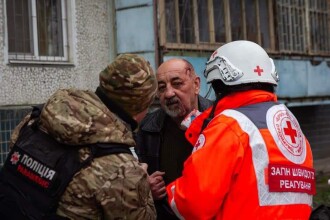
Emergency response team provide first aid services after missile attacks in Kyiv
With support from the wider international Red Cross Red Crescent Movement, Ukrainian Red Cross and ICRC provide essential relief items, including mental health support, health care, first aid, evacuation and protection services.
Our partners have helped over 750,000 people in Ukraine receive health care. The Movement supports 21 primary health care centres to provide medicines and equipment to communities and provides 42 hospitals with regular donations so they can stock vital supplies for influxes of patients, including from the frontline.
Respect for International Humanitarian Law – even wars have laws
The ICRC has called repeatedly for parties to the conflict to uphold international humanitarian law (IHL). It is the obligation of States to hold themselves and each other accountable to this Law. All States have ratified the 1949 Geneva Conventions which include the humane treatment of prisoners of war or detainees, protection of civilians and civilian infrastructure during hostilities. Red Cross National Societies and the International Committee of the Red Cross (ICRC) have distinct mandates to carry out humanitarian activities in international armed conflicts. We must be allowed to carry out our work.
Humanitarian need continues to grow
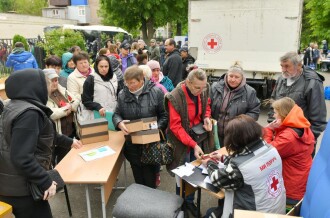
Providing support to evacuees at the border of Kharkiv Oblast – east Ukraine
The Red Cross Red Crescent Movement’s response is truly international. Almost 130,000 staff and volunteers from around the world are helping bring relief to people impacted by the crisis.
Temporary shelter has been set up along Ukraine’s borders for overnight respite for refugees, and for people who have lost their homes. Volunteers distribute essential support to people on both sides. They also hand out SIM cards to help families separated by the war to reconnect. As the frontlines continue to shift, more civilians will be subjected to the horrors of conflict, with lives lost and families torn apart.
In Ukraine, as winter sets in, many families face living without power, running water and heating. Snow begins falling in late October and temperatures plummet. Where there is no electricity, families try to stay warm with fires and blankets; they melt ice for water and eat from what stores of food they have managed to save.
For people in Ukraine, carrying out simple yet necessary activities like gathering wood, planting a garden or walking on an unpaved road are taking on a deadly level of risk. Ukraine is now one of the most contaminated battlefields in the world. The effects of landmines on people living in, returning to, or passing through contaminated areas will last for years.
More information
Support for our Ukraine Humanitarian Crisis Appeal
New Zealand Red Cross is continuing to raise funds. If you are in a position to support our humanitarian effort, please donate to our Ukraine Humanitarian Crisis Appeal.
Donations will be used to help those affected by the crisis in Ukraine and surrounding countries, as well those affected in New Zealand.
Contact missing family in Ukraine
If you have lost contact with your family members in Ukraine, please contact our Restoring Family Links service. We work with our Movement partners internationally to trace and reconnect family members.
Restoring Family Links information
Note: New Zealand Red Cross does not process visas. To help your family in Ukraine come to New Zealand, visit Immigration New Zealand’s website for information about visa applications.
Immigration New Zealand’s website
Lead photo: Ukraine Red Cross set up an aid station in Kyiv supporting people after a missile attack.
